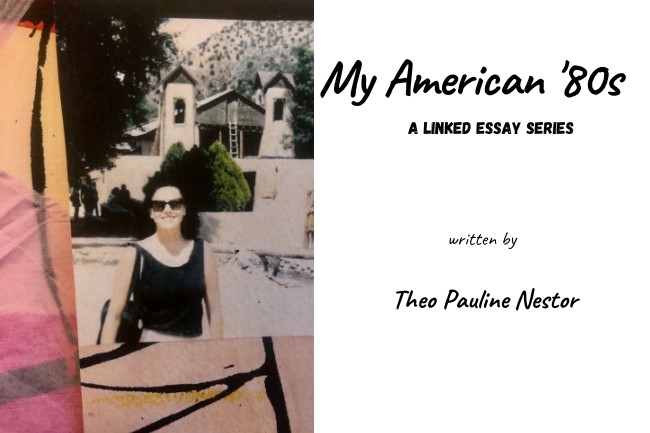I am against forcing myself to do things that I supposedly enjoy doing. I’m against force, rules, and quotas because I reliably get terrible results every time I forget that “being disciplined” doesn’t work for me. When I tell myself I have to write x number of words a day, I quickly have an algebra problem that starts like this: “Let x equal 0.”
If discipline worked for me, I’d be the Jack LaLanne of quotas, jumping through quota hoops day in and day out and urging you in a panting voice to do the same. I’d be the Quota Queen, pounding out the pages with a dozen books to my name. I’d rename every day of the week Quota Day with a trademark sign. But, in fact, quotas and rules bring out the worst possible type of foot-dragging behaviors in me. I give myself a quota and 20 minutes later I’m driving across town to buy a coat I don’t need.
But I’m not here to dispute the worth of quotas. I know that they do work for some people. I know this because I’ve heard these people talk about quotas and have subsequently witnessed the mountain of work they’ve produced writing three pages or 1000 words a day or at some other measured rate.
My fundamental problem with quotas is that the mere existence of them suggests that writing is a thing to be endured like sit ups, that writing is something I must do instead of something I want to do. In the absence of force, though, I have needed to develop some reliable means to get myself going. Below are some of the methods to increase production I’ve used with good result. Each rests on two assumptions: 1) Writing is an activity that I actually want to do–even if I need a nudge to get started–and 2) Humans are actually good and can be trusted outside of the constraints of rules.
I invite you to try some of them yourself. Or better yet, develop a list of your own. Such lists are created by watching yourself and taking note of the conditions conducive to writing and making it a point to create those conditions more often.
1. Indulge my reading interests.
Because clicking on various links is how I usually procrastinate, I tend to feel guilty whenever I am spending an hour letting one article lead me to another. But I’ve realized that not all instances of clicking around are equal. Yes, sometimes I am wasting a bunch of time on click-bait articles that are poorly written, but at other times, I am following a topic that interests me. One of the things I’ve had to develop as a writer (which I’ve written about here) is my sense of the importance of my ideas and interests. Even if I can’t see where it’s headed, I try to let my curiosity lead the way.
2. Notice ideas bubbling up and follow up on them ASAP.
Lorrie Moore once said something like this about being a writer: “Story ideas visit you and it’s up to you to decide if you’re going to make room for them in your life.” This paraphrased quote revisits me quite often. I think it’s a great description of that moment of choice that occurs when an idea bubbles up. I can either get myself to a piece of paper or I can let the idea pass through me. If I don’t follow up on the idea right away, I can be sure that the next day the window of opportunity will have closed. It’ll be a “somebody I used to love” idea. Yes, I can see the appeal but the desire to pursue is gone. But if I do make it to the page during those crucial few hours, I find the writing is often effortless. I don’t have to worry about writing a certain number of words. My only worry is whether or not I can get the words I do have down fast enough.
3. Go outside my writing comfort zone.
When I write stuff that scares me–that pushes me in some new way because of either its form or content–the writing magnetizes me, allowing me to stay on the page much longer than when I’m writing something that feels like well-trod territory.
4. Write with a friend.
I’m doing this one right now (Look! See friend in pic!). It’s pretty easy for me to stay on task when my friend is across the table from me typing away. Even though she’s writing a piece for the magazine she edits and I’m writing this, her presence makes me feel like I’m on a team called Team Writers. If I shut my laptop, Team Writers will lose the game to Team Enertia. Must not let down team. Must keep writing.
5. Walk somewhere pleasant to write.
Sometimes I walk to a cafe fifteen minutes from my house to write. On the way there I think about what I want to write. On the way back, I think about how I want to edit it. Usually when I get home, I get one more inspired writing session out of myself before calling it a day.
6. Create a deadline.
Julia Cameron says in the terrific book The Right to Write that deadlines create adrenaline and adrenaline helps us to override our censors. As our deadlines approach, we no longer have time to indulge in the voices that say our work isn’t good enough; we just have to bust out the pages. How can you create deadlines? Take a writing class with a workshop component. Join a writing group. Sell a book proposal. Find literary contests and circle their deadlines on your calendar and promise yourself you’ll submit.
7. Speak my mind.
This is related to #3. If you write about the things that make you angry, the things that you’re normally afraid to say, you’ll find that the words pour out onto the page like lava. No need for quotas. You can rely on ire to up your word count.
8. Offer myself freedom.
I’m not quite sure how or why this works, but when I’m in the middle of a chapter, a book, or an essay, I tell myself, “I can take this anywhere I like.” This sentence intoxicates me as if I’ve just been handed the keys to a magical kingdom of which I will now be sovereign. Drunk with power, I find it pretty easy to keep going.
9.Buy myself expensive art pens.
I write by hand a lot, and I find having the right pens (Faber Castell is my current favorite) makes me want to write more. Pens make me happy. When I’m happy, I work longer.
10. Set the timer for 15 minutes.
And when I really can’t get going, I circle back to the trick I learned from Virginia Valian’s essay “Learning to Work” twenty-five years ago. I tell myself I only have to write for 15 minutes. I set the timer and I write. When the bell dings, I often find myself thinking, “But I don’t want to stop!”
And then I tell myself I don’t have to.
———————-
 You can read more tricks for increasing your productivity the easy way in the book Writing Is My Drink.
You can read more tricks for increasing your productivity the easy way in the book Writing Is My Drink.





Leave a Reply